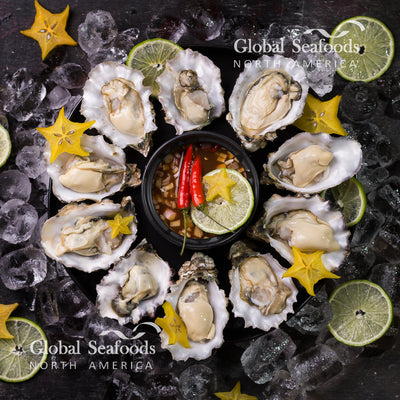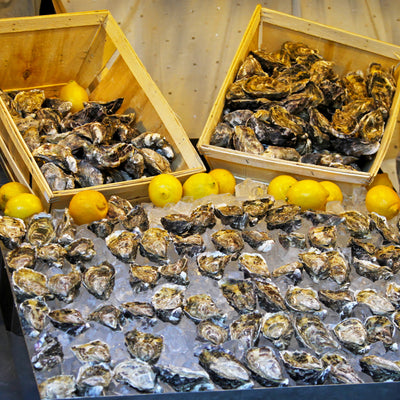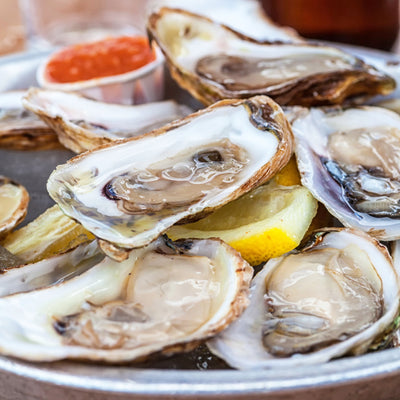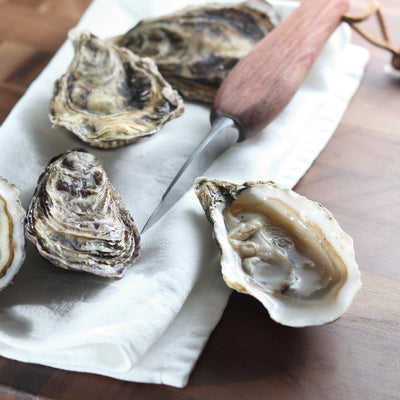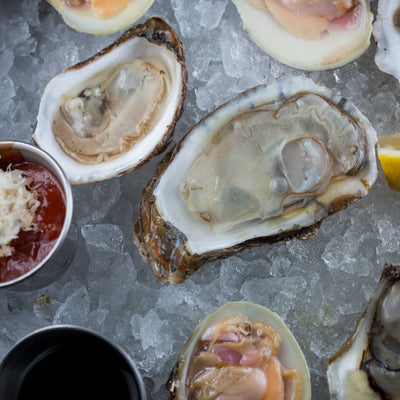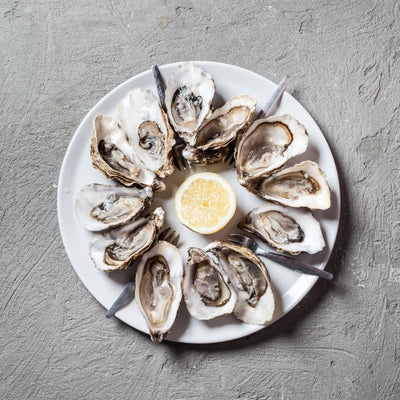Oyster Aquaculture: A Sustainable Future for Seafood Production

Oyster Aquaculture Production
As the global demand for seafood rises, oyster aquaculture is emerging as a beacon of sustainability in the seafood industry. This farming method not only boosts seafood production but also supports marine ecosystems and local economies. By cultivating oysters in controlled environments, aquaculture provides a renewable food source while addressing the challenges of overfishing and climate change.
Let’s dive into the benefits, methods, and future of oyster aquaculture and explore how it’s transforming the seafood industry.
The Growing Need for Sustainable Seafood
Global Seafood Demand is Rising
According to the Food and Agriculture Organization (FAO), global seafood consumption has doubled over the past 50 years, with further growth projected. This surge in demand has placed immense pressure on wild fish populations and marine ecosystems.
Challenges Facing Wild Fisheries
- Overfishing: Nearly 90% of the world’s fish stocks are either fully exploited or overexploited.
- Climate Change: Rising sea temperatures and ocean acidification threaten marine life.
- Economic Impact: Communities dependent on wild fisheries face declining yields and income.
Oyster aquaculture offers a sustainable alternative to meet seafood demand without depleting natural resources.
What is Oyster Aquaculture?
Oyster aquaculture involves the cultivation of oysters in controlled environments, such as coastal farms or submerged cages. Farmers nurture oysters from seed (spat) to harvest, ensuring optimal growth conditions while minimizing environmental impact.
Why Oysters?
- Natural Filters: A single oyster can filter up to 50 gallons of water per day, improving water quality and supporting marine life.
- Minimal Resources: Oysters require no feed or freshwater, making them an environmentally friendly seafood choice.
- High Nutritional Value: Rich in protein, omega-3 fatty acids, and essential minerals, oysters are a superfood for health-conscious consumers.
Benefits of Oyster Aquaculture
1. Environmental Sustainability
- Habitat Restoration: Oyster farms provide shelter for marine species, enhancing biodiversity.
- Carbon Sequestration: Oysters absorb carbon dioxide as they form their shells, helping combat ocean acidification.
- Ecosystem Services: By filtering water, oysters reduce algae blooms and improve marine health.
2. Economic Opportunities
- Job Creation: Oyster farming supports local economies by creating jobs in coastal communities.
- Export Potential: High-quality farmed oysters are in demand globally, boosting trade revenues.
- Tourism: Many farms offer tours and tastings, attracting visitors and promoting seafood education.
3. Reliable Seafood Supply
- Consistent Yield: Unlike wild fisheries, aquaculture provides a steady supply of seafood year-round.
- Quality Control: Farmers monitor conditions to ensure oysters meet health and safety standards.
- Market Diversification: Oyster farms can cater to gourmet, retail, and wholesale markets.
Techniques Used in Oyster Aquaculture
1. Bottom Culture
Oysters are placed on the seabed in natural conditions, where they grow until harvest. This method mimics wild oyster growth but is closely monitored for sustainability.
2. Off-Bottom Culture
Oysters are grown in floating or suspended systems, such as:
- Cages: Protect oysters from predators while ensuring water circulation.
- Rafts: Allow large-scale cultivation in open waters.
- Bags: Provide easy access for farmers to monitor growth.
3. Hatchery Production
Farmers cultivate oyster spat in hatcheries before transferring them to farms. This method ensures high survival rates and controlled growth.
Sustainability and Oyster Aquaculture
Reducing Overfishing
By providing an alternative seafood source, oyster farming reduces pressure on wild fisheries, allowing populations to recover.
Combatting Climate Change
Oysters play a role in mitigating climate change by absorbing carbon dioxide and improving water quality.
Promoting Local Ecosystems
Oyster reefs created through aquaculture support marine biodiversity, serving as habitats for fish, crabs, and other species.
Where to Buy Sustainably Farmed Oysters
If you’re inspired to support sustainable seafood, explore the premium oysters available at Global Seafoods:
Enjoy high-quality oysters delivered fresh to your doorstep, sourced from sustainable farms.
Learn More on YouTube
Discover how oyster aquaculture works and get inspired to prepare gourmet oyster dishes by visiting the Global Seafoods YouTube Channel. Watch tutorials, recipes, and expert insights about sustainable seafood practices.
Future of Oyster Aquaculture
1. Advancements in Technology
Innovations like automated monitoring systems and AI-powered farm management are making oyster farming more efficient and scalable.
2. Increased Consumer Awareness
As consumers become more eco-conscious, demand for sustainably farmed oysters continues to grow.
3. Global Expansion
Countries worldwide are investing in oyster aquaculture, recognizing its economic and environmental benefits.
Frequently Asked Questions About Oyster Aquaculture
1. Are farmed oysters as good as wild oysters?
Yes! Farmed oysters often have consistent quality and flavor due to controlled farming conditions.
2. Is oyster farming sustainable?
Absolutely. Oyster aquaculture has minimal environmental impact and contributes to healthier marine ecosystems.
3. Can I visit an oyster farm?
Many farms offer tours and tastings, giving visitors a firsthand look at sustainable seafood production.
Conclusion: A Sustainable Seafood Revolution
Oyster aquaculture is paving the way for a sustainable seafood future. By supporting this eco-friendly farming method, we can enjoy delicious, high-quality oysters while protecting our oceans and supporting coastal communities.
Whether you’re dining out or ordering oysters online, choose sustainable options like those from Global Seafoods. Explore their extensive collection and savor the best seafood the world has to offer.
Shop Now:
Also in News

How to Make Sea Bream Sushi With Dry-Aged Tuna & Crab Roll — Step-by-Step With Chef Joshua
A complete guide to making Sea Bream sushi at home, including filleting, curing, slicing, and building a Dry-Aged Tuna & Crab sushi roll. Chef Joshua shares professional tips for restaurant-quality results.

Cooked Crab for Game Night: Everything You Need for a Perfect Seafood Party
Take your game night to the next level with a Cooked crab party. Learn the best recipes, cooking tips, and hosting hacks for a memorable seafood feast.

Steam Crab for Date Night: A Romantic Guide to the Perfect Seafood Feast
Make your next date night unforgettable with a romantic Steam crab experience. This guide covers everything you need to know, from ambiance to the best crab varieties.

